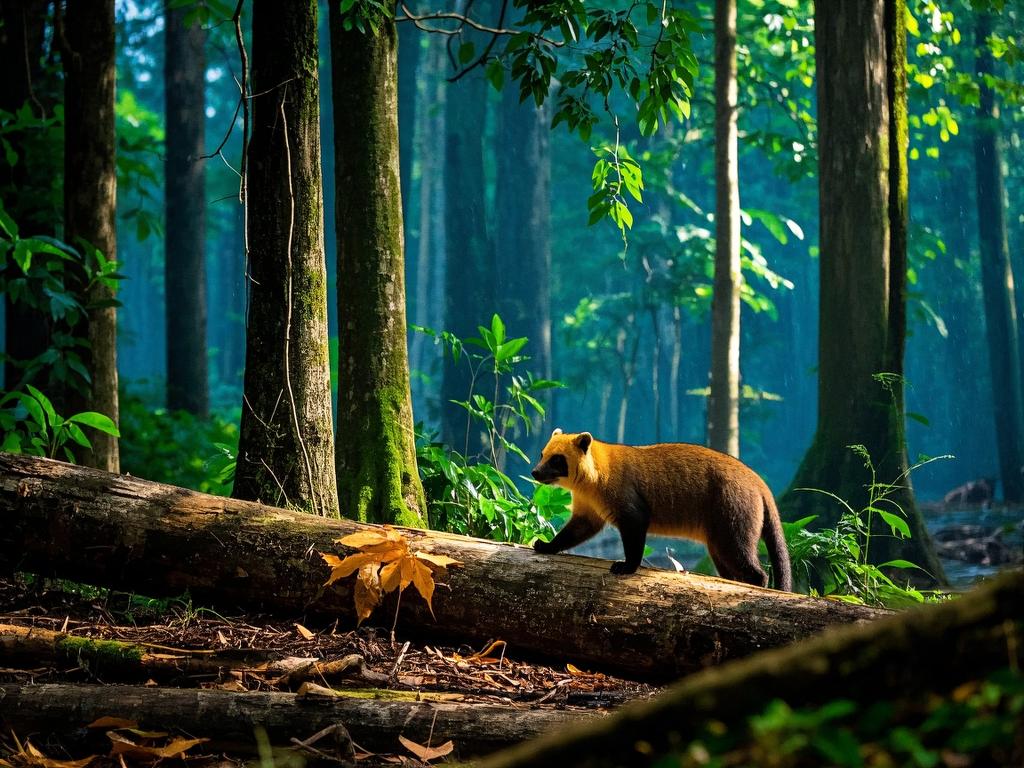
# The Lush Rainforests of Southeast Asia: A Tapestry of Life in Jeopardy
The rainforests of Southeast Asia are a wonderland of biodiversity, a living testament to the intricate web of life that has evolved over millions of years. These lush ecosystems, spanning countries like Indonesia, Malaysia, Thailand, and the Philippines, are home to an astonishing array of species, many of which are found nowhere else on Earth. But today, this precious tapestry of life is in grave jeopardy, facing a multitude of threats that could unravel its delicate threads forever.
Let's start with the numbers. Southeast Asian rainforests cover approximately [X] million hectares, housing an estimated [X]% of the world's plant and animal species. That's mind-boggling! Just think about the countless unique creatures that call these forests home - from the majestic orangutans swinging through the trees to the colorful birds of paradise flaunting their plumage. And let's not forget about the countless plant species with their medicinal properties and ecological importance.
One of the most pressing threats to these rainforests is deforestation. Logging companies, eager to exploit the valuable timber resources, are hacking away at the forests at an alarming rate. According to recent studies, [X]% of the original rainforest cover in Southeast Asia has been lost in the past few decades. That's like tearing up a precious manuscript page by page. The result? Habitat destruction on a massive scale. Species are losing their homes, and many are being pushed to the brink of extinction.
But it's not just logging that's to blame. The expansion of agriculture, especially palm oil plantations, is also taking a huge toll. Palm oil is in everything these days - from our food products to our cosmetics. And the demand for it is skyrocketing. To meet this demand, vast areas of rainforest are being cleared to make way for palm trees. It's a classic case of short-term gain for long-term pain. We're sacrificing the rich biodiversity of the rainforests for a commodity that could easily be sourced more sustainably.
Another threat looms large - climate change. Rising temperatures, changing rainfall patterns, and more frequent extreme weather events are all having a profound impact on the rainforests. These ecosystems are finely tuned to specific climatic conditions, and any disruption can throw them off balance. For example, prolonged droughts can increase the risk of forest fires, which can spread rapidly and destroy large areas of forest. And as the climate continues to change, the rainforests may no longer be able to support the species that depend on them.
What can we do to save these precious rainforests? Well, first of all, we need to hold governments and corporations accountable. They have a responsibility to protect these ecosystems, not exploit them. We should demand stricter laws and regulations to prevent illegal logging and deforestation. And we should support sustainable practices, such as responsible logging and the use of alternative, more sustainable sources of palm oil.
As consumers, we also have a role to play. We can make a difference by choosing products that are sustainably sourced. Look for labels that indicate the product is palm oil-free or sourced from sustainable plantations. By voting with our wallets, we can send a message to companies that we care about the environment.
Let's not forget about the power of education. We need to raise awareness about the importance of the rainforests and the threats they face. Only when people understand the value of these ecosystems will they be motivated to take action. So, spread the word, share this information with your friends and family, and let's work together to save the lush rainforests of Southeast Asia before it's too late.
In the words of the famous environmentalist, David Attenborough, "The future of humanity and indeed all life on Earth depends on our ability to protect and restore the natural world." The rainforests of Southeast Asia are a crucial part of that natural world. Let's not let them become a casualty of our greed and shortsightedness. Let's act now to ensure that these vibrant, diverse ecosystems continue to thrive for generations to come. Otherwise, we'll be left with nothing but a barren landscape and a legacy of destruction. So, what are you waiting for? Join the fight to save the rainforests today!

